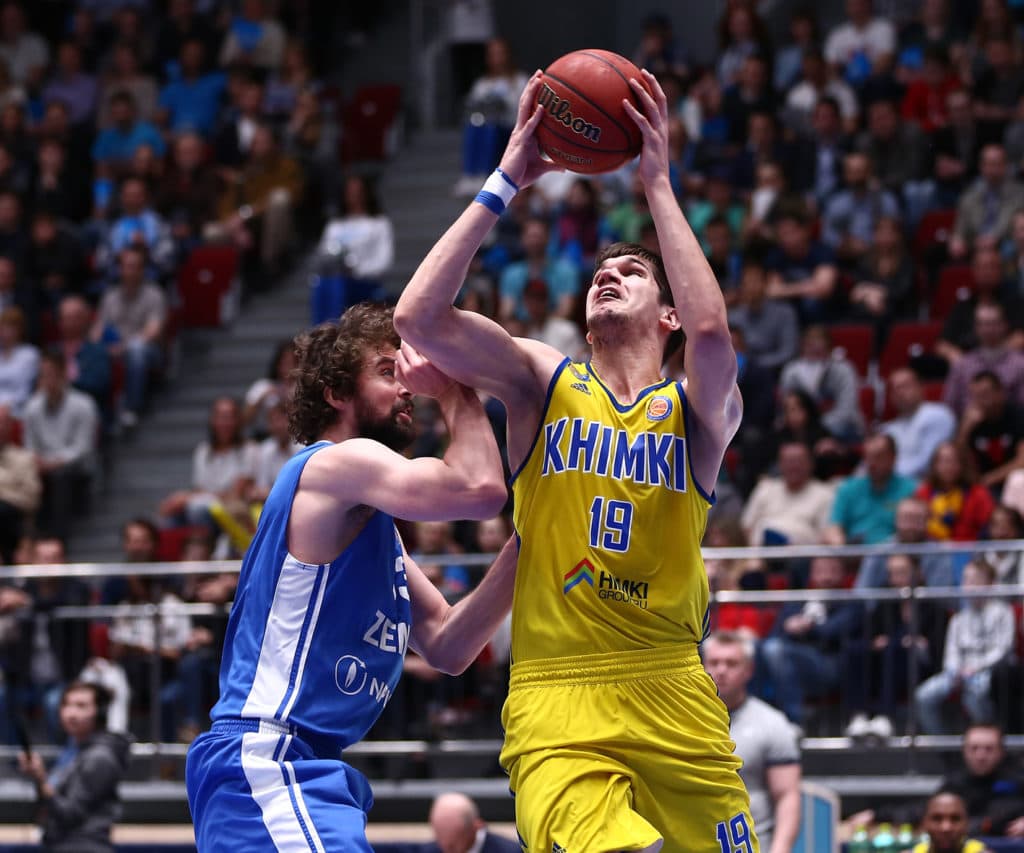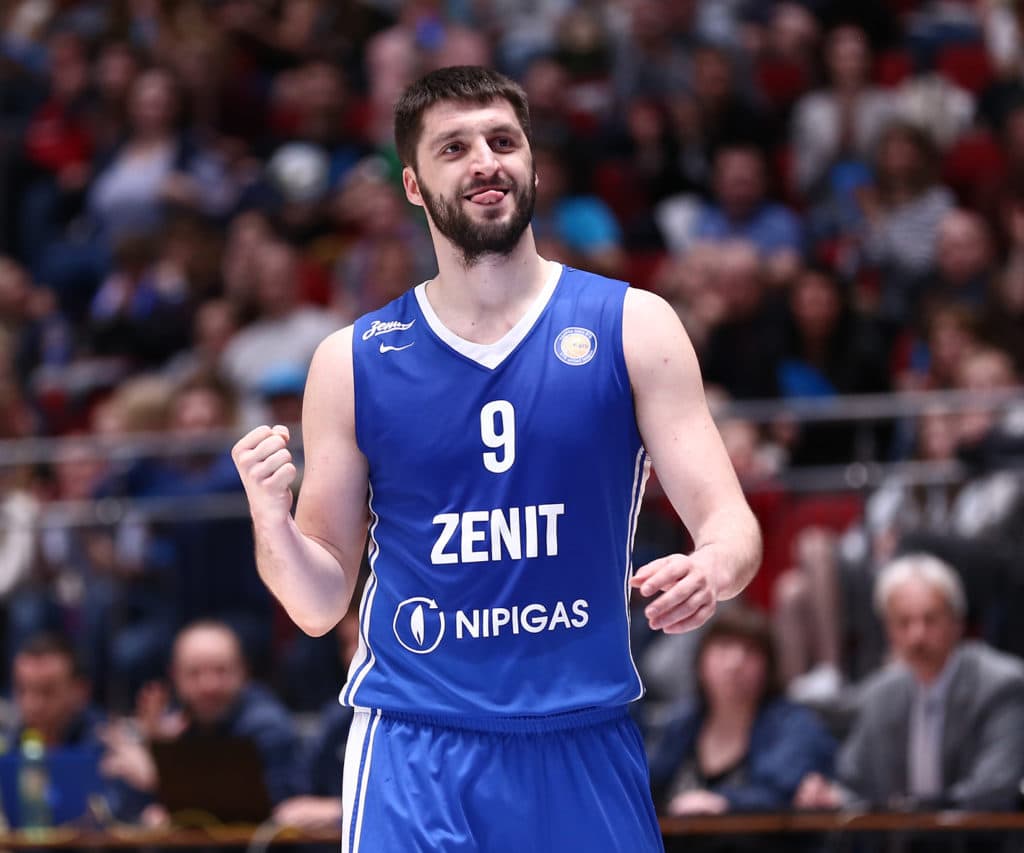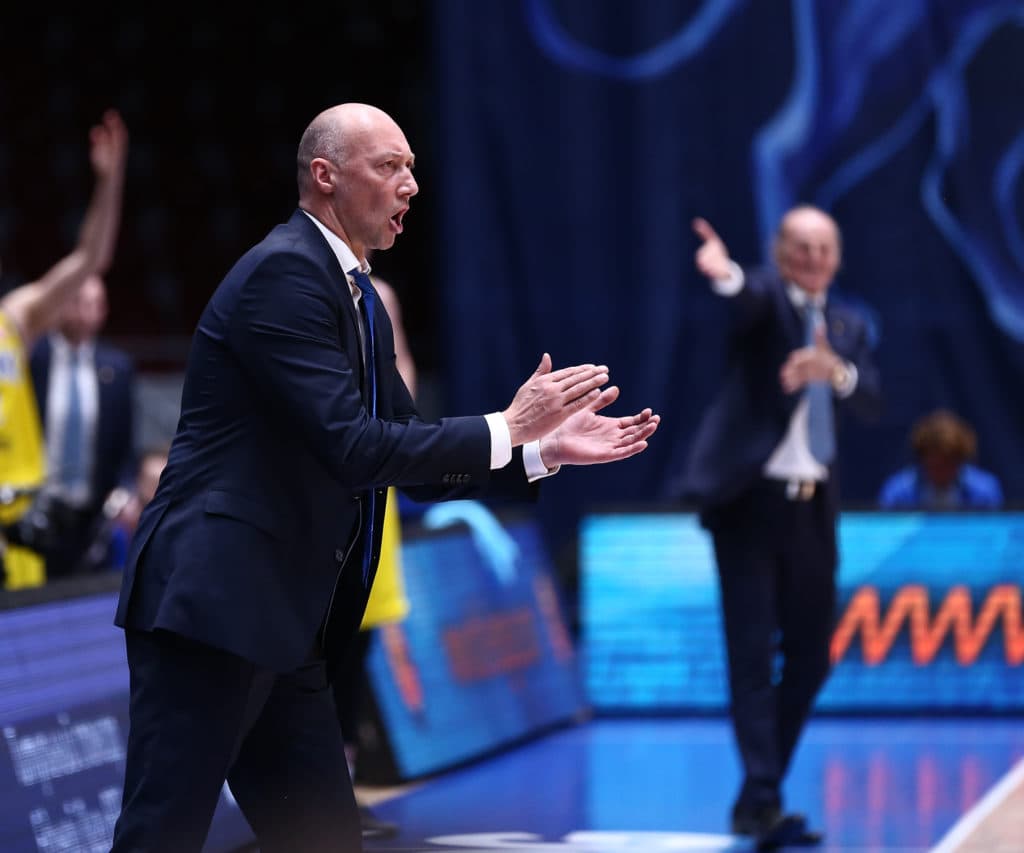Dmitry Gerchikov shares his thoughts on the Zenit – Khimki semifinals with St. Petersburg staking a 2-0 lead at home.
***
I don’t know if fans can expect more from the teams. Given the demanding schedule, high-level intensity and pressure, it would not be a surprise for Khimki and Zenit to show some cracks. When the stakes are this high, it’s not unusual for teams to pin their hopes on a star player and go along for the ride. These two Russian powerhouses, however, are showing an admirable determination to not cut corners and play as a team.

Of course, you may have some questions after glancing at Alexey Shved’s numbers in the series. After all, didn’t the Yellow-Blues rely on their star guard for almost everything in the first two games? The numbers seem to indicate a startling dependency on Khimki’s part. But that’s not true when you dig a bit deeper.
Dusko Ivanovic recognizes he’s not going to one-up Zenit’s depth. For that reason, he does whatever possible to get Shved’s teammates to play to the Russian’s strengths and make life easier for him. Take Todorovic, for example. His pick-and-rolls with Shved pose a constant threat, considering both Landry and Mbakwe are not very effective defending the Balkan big man. The former struggles with quickness, while the latter isn’t always quick with decisions.
One-on-one from the hash mark or deep in the post, Todorovic doesn’t leave Pushkov much of a chance, either, plus he does a good job neutralizing help defense from the wings. Teammates clearly have an impact on Shved’s numbers. Without the threat provided by the Montenegrin froward, Khimki’s leader wouldn’t have room for a first step or the opportunity to create space before the defense closes in.
To that point, Zenit thus far has struggled with double teams and help defense. For one, Karasev’s men often fail to communicate, allowing the visitors to split double teams with simply diagonal passes. Second, when pressuring the three-point shooters, St. Petersburg doesn’t get enough support down low, creating opportunities in between. The Yellow-Blues immediately take advantage of the gap between high and low, scoring easy points. Shved’s forays to the basket have made the biggest impression, but Rowland and Boungou-Colo are both effective as well, though not as flashy.
One final thought on Khimki. For such a short-handed and tactically limited roster, the team has gone after Zenit’s weaknesses with impressive tenacity. The opportunity for several weeks of preparation gave the coaching staff a chance to break down their opponent’s system in minute detail. Thus, St. Petersburg’s strengths–speed, versatility on the wings, density of three-point shooting–were significantly limited. Not surprisingly, the final margin of victory in both games has been very small indeed.
But we shouldn’t forget that the playoff’s #2 seed defeated Khimki twice during the regular season and has now won 20 in a row, including regular and postseason! Vasily Karasev’s club has become a constant threat in transition and once Harper gets healthy, the team speedometer could be near a breaking point. But even without Harper, St. Petersburg does a good job forcing the opponent to play by its rules.

In the halfcourt, it’s true, the Blue-White-Sky Blues sometimes stall. Initially, that was seen as Khimki’s best chance to rescue the series. But St. Petersburg’s summer acquisition of Stefan Markovic has proven a godsend. There’s no point comparing the Serb to his more famous countryman. Markovic may not make decisions under pressure at the same level or dazzle with no-look passes like Milos Teodosic, but that’s not what he’s asked to do.
Zenit plays as simple as possible in the halfcourt, seeking to create open shots with ball movement along the perimeter or by swinging to the weak side. The humble pick-and-roll is often all that’s needed to get the big men involved. Given Stefan’s agreeable nature and appetite for hard work (check out his minutes per game), it’s no surprise he’s a priority target for CSKA and Barcelona this summer.
But will Markovic be at his best after back problems in Game 2?
Zenit also has its own Shved, if you will: Sergey Karasev. He’s the one who steps up when the team is out of options. The head coach’s son, he knows when to attack the basket or draw defenders out to the perimeter in order to increase the likelihood of a defensive mismatch or positional breakdown. He’s got such a fine appreciation of the moment, it can be pure pleasure to watch his decision-making and maturity.

Let’s conclude with a few words on the head coaches. Karasev, like Ivanovic, tends to stick to the game plan. Neither coach has shown much impromptu decision-making and neither has benefited much from deviations to the script. That’s why a brand-new, Moscow Region chapter in the series has creative potential.
It’s less true, of course, for St. Petersburg. Leading 2-0, it would be a crime to fix what’s not broken. But it would be nice to see a little more daring and originality from the Khimki boss on defense. Otherwise, Ivanovic and co. may not enjoy a return to the banks of the Neva.
Nevertheless, there’s a distinct feeling the series will be extended and we’ll see even better performances from the players and coaches in the very near future. It’s going to be memorable!
























